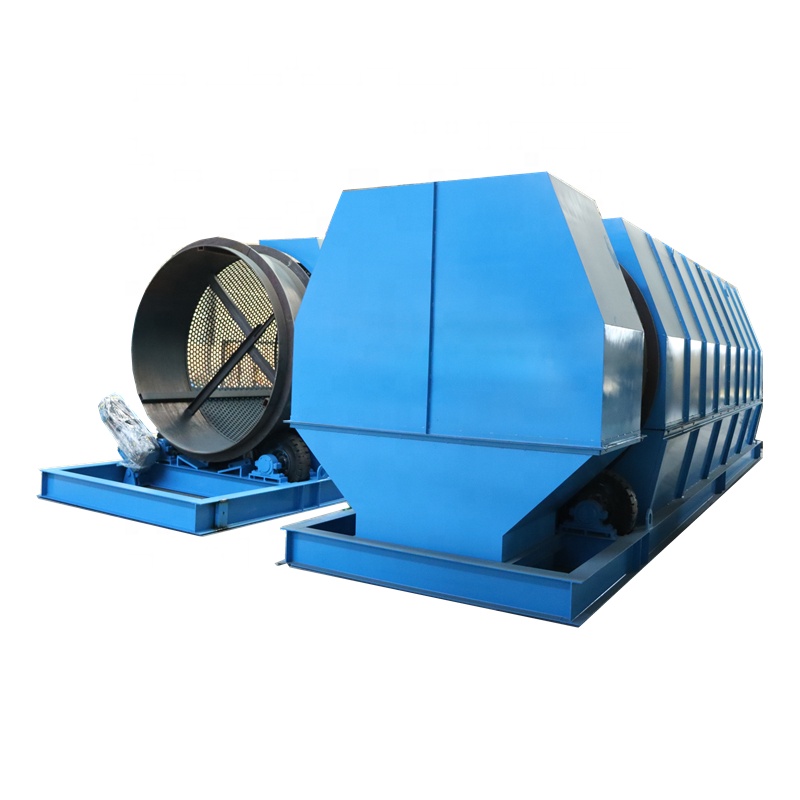

Jul . 27, 2024 16:05 Back to list
The Importance of E-Waste Recycling Machines
In today's digital age, electronic devices have become an integral part of our lives. From smartphones and laptops to refrigerators and televisions, our dependency on these gadgets has significantly increased. However, this surge in technology usage comes with a severe environmental challenge electronic waste, commonly known as e-waste. E-waste refers to discarded electronic devices that pose significant risks to both human health and the environment due to hazardous materials they often contain. Consequently, the need for efficient e-waste recycling machines has become imperative for sustainable waste management.
The Importance of E-Waste Recycling Machines
One of the key advantages of e-waste recycling machines is their efficiency in processing a large volume of electronic waste. Traditional disposal methods, such as landfilling or incineration, can lead to the release of toxic substances like lead, mercury, and cadmium into the environment. In contrast, recycling machines can systematically dismantle devices, ensuring the safe separation of harmful elements from recyclable components. For example, advanced shredders can break down large appliances into smaller pieces, while magnets and air classifiers can be employed to separate metals from non-metals effectively.

Moreover, the implementation of e-waste recycling machines can contribute to economic growth. The recycling process generates job opportunities in various sectors, including collection, transportation, sorting, and recycling. Companies specializing in e-waste recycling can create a green economy that not only promotes environmental sustainability but also provides employment for local communities. As awareness about the importance of recycling increases, the demand for e-waste recycling services is likely to grow, further boosting economic opportunities.
In addition to environmental and economic benefits, the rise of e-waste recycling machines has prompted innovation in technology. Many modern recycling machines integrate advanced technologies such as artificial intelligence and machine learning to enhance the sorting process. These technologies can improve the accuracy of material identification, leading to higher recovery rates and reduced contamination levels. Furthermore, research and development in this field have resulted in the creation of machines that are more environmentally friendly, utilizing less energy and reducing waste during operation.
As consumers, it is essential to understand our role in this recycling ecosystem. By properly disposing of old electronic devices and utilizing e-waste recycling services, individuals can make a significant impact on environmental sustainability. Many communities now offer recycling programs specifically for electronic waste, making it easier than ever to recycle old gadgets responsibly. Additionally, manufacturers are also becoming increasingly aware of their responsibility toward e-waste management by implementing take-back programs and designing products with recyclability in mind.
In conclusion, e-waste recycling machines are vital in addressing the burgeoning issue of electronic waste. They provide efficient, safe, and environmentally friendly solutions for recycling discarded electronic devices, while also contributing to economic growth and technological innovation. As we continue to embrace new technologies, it is crucial to prioritize sustainable disposal methods. By supporting e-waste recycling initiatives, we can ensure a cleaner planet for future generations.
Latest news
The Future of Metal Recycling: Revolutionizing Waste Management
NewsMay.14,2025
Optimizing Waste with Recycling Lines
NewsMay.14,2025
Municipal Solid Waste Sorting Line: Revolutionizing Waste Management
NewsMay.14,2025
Metal Shredders: Essential Tools for Efficient Recycling
NewsMay.14,2025
Maximize Your Profits with a Copper Wire Granulator
NewsMay.14,2025
Home Metal Shredder: A Smart Choice for Your Home Recycling Needs
NewsMay.14,2025